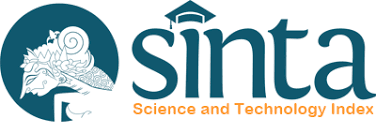Illegal Access dalam Pemanfaatan Mangrove untuk Arang Bakau oleh Masyarakat di Batu Ampar, Kalimantan Barat
DOI:
https://doi.org/10.24259/jhm.v11i1.5993Keywords:
mangrove, mangrove charcoal, protected forest, Theory of AccessAbstract
This study aims to identify the causes of illegal access for the community in carrying out mangrove utilization activities as raw material for charcoal in Batu Ampar District, Kubu Raya, West Kalimantan. This research was conducted in 3 villages in Batu Ampar Subdistrict, namely Batu Ampar Village, Nipah Panjang Village and Teluk Nibung Village. Data collection was done through field observations, in-depth interviews, documentation studies and literature studies. Data analysis used descriptive analysis method with the Theory of Access approach according to Ribot and Peluso (2003). The results showed that the causes of illegal access in the use of mangroves as a raw material for charcoal by the community in Batu Ampar Subdistrict were the characteristics of protected forest resources as Common Pool Resources (CPRs) and high exclusion costs and the obmission of local government. The communities get the power of access to protected forests in Batu Ampar mainly through access to capital provided by investors (cukong), both collectors and buyers.
References
Contreras-Hermosilla, A. (2001). Law compliance in the forestry sector: an overview. Washington DC (US): World Bank.
Hardiman, F. B. (2009). Demokrasi deliberatif. Yogyakarta (ID): Penerbit Kanisius.
Hess, C., E. Ostrom. (2007). Understanding knowledge as common; from theory to practice. England (UK): The Mit Press.
[LPP Mangrove] Lembaga Pengkajian dan Pengembangan Mangrove. (2002). Laporan akhir program lanjutan uji coba pengelolaan hutan alam produksi oleh masyarakat Kecamatan Batu Ampar Kabupaten Pontianak Propinsi Kalimantan Barat. Pontianak (ID): LPP Mangrove.
Nazia, Z., R. Nugroho, W. Atikah. Kajian yuridis mengenai illegal logging di kawasan hutan (Studi kasus di Balai Taman Nasional Meru Betiri Kabupaten Jember). Artikel Ilmiah Hasil Penelitian Mahasiswa 2013. http://repository.unej.ac.id/bitstream/handle/123456789/58751/Zahrotun%20N azia.pdf?sequence=1 [Akses Rabu 22 Juni 2016].
Peraturan Pemerintah Republik Indonesia Nomor 6 Tahun 2007 tentang Tata Hutan dan Penyusunan Rencana Pengelolaan Hutan, serta Pemanfaatan Hutan.
Peraturan Pemerintah Republik Indonesia Nomor 3 Tahun 2008 tentang Perubahan atas Peraturan Pemerintah Nomor 6 Tahun 2007 tentang Tata Hutan dan Penyusunan Rencana Pengelolaan Hutan, serta Pemanfaatan Hutan.
Prasetiamartati B, Tai HS, Santoso N, Murtikasari R, Syah C. (2008). Mangrove forest and charcoal production: Case of Batu Ampar, West Kalimantan. Paper submitted for IASC 2008 Global Conference. http://iasc2008.glos.ac.uk/conference%20papers/papers/P/Prasetiamartati%20_ 121401.pdf [Akses Rabu 22 Juni 2016]
Ribot, J.C., N. L. Peluso. (2003). A theory of access. Rural sociology society. 68(2):153-181.
Ritabulan, S. Basuni, N. Santoso, M. Bismark. (2016). Hambatan implementasi kebijakan Hutan Tanaman Rakyat di Batu Ampar, Propinsi Kalimantan Barat. Jurnal Analisis Kebijakan 13(2): 73 – 84.
Sjaf, S. (2012). Pembentukan identitas etnik dalam arena ekonomi politik Lokal di era desentralisasi [disertasi]. Bogor (ID): Sekolah Pascasarjana IPB.
Scott, J. (1989). The moral economy of peasant, rebellion and subsistence in southeast asia. Diterjemahkan oleh Hasan Basri. Jakarta: LP3ES.
Thompson, E.P. (1975). Whigs and hunters. New York (US): Pantheon Books.












